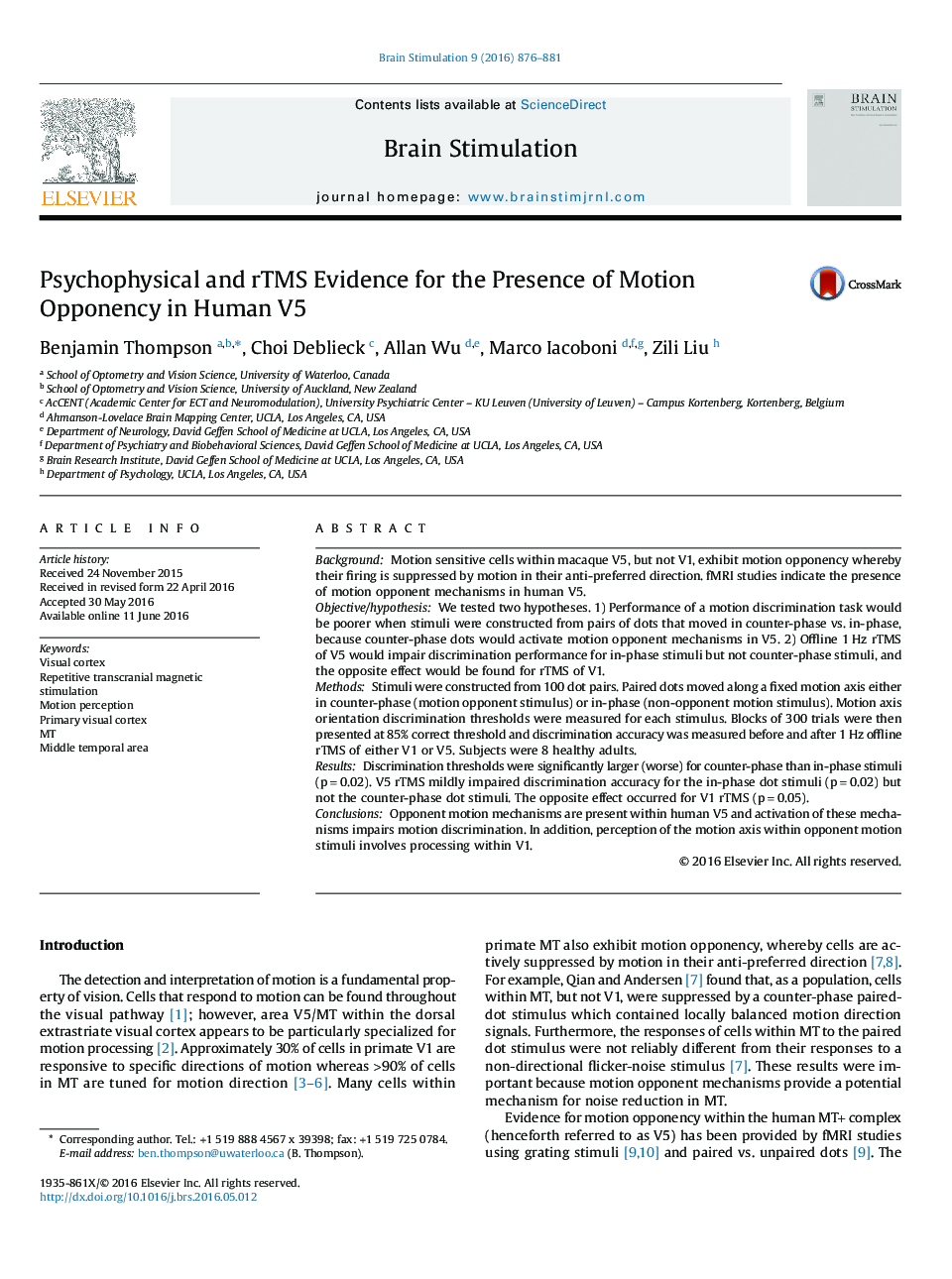| Article ID | Journal | Published Year | Pages | File Type |
|---|---|---|---|---|
| 5626890 | Brain Stimulation | 2016 | 6 Pages |
â¢rTMS of V1 impairs perception of motion opponent stimuli.â¢rTMS of V5 impairs perception of non-motion opponent stimuli.â¢Motion discrimination is poorer for motion opponent than non-motion opponent stimuli.
BackgroundMotion sensitive cells within macaque V5, but not V1, exhibit motion opponency whereby their firing is suppressed by motion in their anti-preferred direction. fMRI studies indicate the presence of motion opponent mechanisms in human V5.Objective/hypothesisWe tested two hypotheses. 1) Performance of a motion discrimination task would be poorer when stimuli were constructed from pairs of dots that moved in counter-phase vs. in-phase, because counter-phase dots would activate motion opponent mechanisms in V5. 2) Offline 1âHz rTMS of V5 would impair discrimination performance for in-phase stimuli but not counter-phase stimuli, and the opposite effect would be found for rTMS of V1.MethodsStimuli were constructed from 100 dot pairs. Paired dots moved along a fixed motion axis either in counter-phase (motion opponent stimulus) or in-phase (non-opponent motion stimulus). Motion axis orientation discrimination thresholds were measured for each stimulus. Blocks of 300 trials were then presented at 85% correct threshold and discrimination accuracy was measured before and after 1âHz offline rTMS of either V1 or V5. Subjects were 8 healthy adults.ResultsDiscrimination thresholds were significantly larger (worse) for counter-phase than in-phase stimuli (pâ=â0.02). V5 rTMS mildly impaired discrimination accuracy for the in-phase dot stimuli (pâ=â0.02) but not the counter-phase dot stimuli. The opposite effect occurred for V1 rTMS (pâ=â0.05).ConclusionsOpponent motion mechanisms are present within human V5 and activation of these mechanisms impairs motion discrimination. In addition, perception of the motion axis within opponent motion stimuli involves processing within V1.
